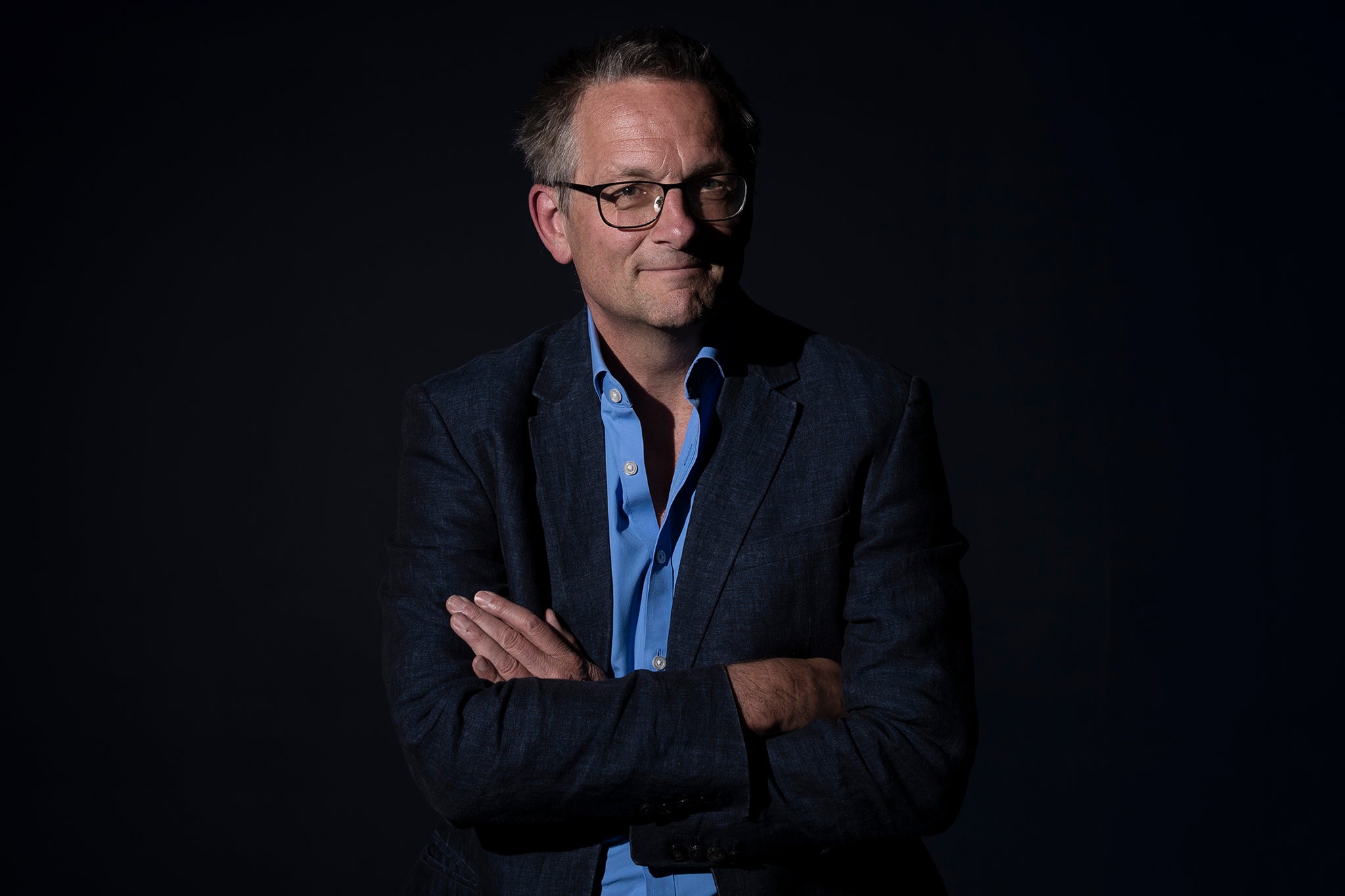‘Dr Michael Mosley would often tell me how his own health battles were the inspiration for his work’
From the daily routine Mosley kept with his wife, to fighting insomnia and reversing his type 2 diabetes, Maria Lally, who regularly talked to the presenter, reflects on the man who always lived by the rules that he set for others, changing not only his own health but that of a generation...


Written under a post on the local Rhodes Facebook group, discussing the disappearance of Dr Michael Mosley a few days ago, was the comment: “He’s such a genuine person, passionate about helping others,” while another wrote, “I owe him so much,” before explaining how one of his books “practically saved my life”. Sadly, a body believed to be his has now been found, with tributes flooding in from Jamie Oliver and Piers Morgan.
I first interviewed Michael in 2019. I knew all about him of course. He was one of the UK’s most well-known doctors and presented several BBC documentaries, appeared on This Morning, and wrote several bestselling books including The Fast Diet in 2013, which sold more than 1.4 million copies. It was revolutionary in popularising the idea of intermittent fasting, which until then few of us had ever heard of.
The next time we spoke was a few months later in April 2020 when the UK had just been thrown into lockdown.
He explained how he and his wife, Clare Bailey Mosley, a GP and author who he’d met at medical school and married in 1987, had been looking after two of their four grown-up children, Dan and Jack, who had been displaying Covid symptoms.
This was before Covid tests were available, but the couple – both medically trained – believed their sons both had the virus and had been caring for them at their home. They had done this with a Mosley-esque diet of gut-friendly foods such as yoghurt and sauerkraut, turmeric smoothies, and “Clare’s healing chicken-bone broth”, which was one of Dan’s favourites.
Both boys were better by the time we spoke but were still unable to smell anything. “Jack is working as a doctor up in Manchester and is now back at work,” he told me proudly. “He’s waiting to see if he’ll be placed in A&E or the intensive care unit.”
Michael and Clare, meanwhile, were halfway through self-isolation. Clare was keen to get back to general practice, to her patients, “and do her bit”.
Describing their day-to-day life, which had served them well during lockdown, Michael was the poster boy for practising what you preach. He explained how they would wake up at the same time each day, around 7am, and do some strength-building exercises like squats and press-ups, before doing 10 minutes of mindfulness and meditation.
After a healthy breakfast (“probably an omelette”), he would go on an exercise bike and do a series of high-intensity interval training exercises. These were all things he would discuss in his popular Radio 4 series, Just One Thing.
They followed a Mediterranean-style diet and went to bed at the same time each night. Ironically, given this week’s news, he told me: “If you don’t have structure to your day, it’s very easy to get sucked into spending your whole day listening to the news, [and] following the latest developments online, which isn’t healthy.”
Health was what he knew, after all.
Michael, who was 67, was born in Calcutta, India, to a banker father. After studying philosophy, politics and economics at Oxford University, he too briefly worked as a banker in the City of London before deciding to switch to medicine.
He wanted to become a psychiatrist but pivoted again and joined a trainee producer scheme at the BBC in the mid-1980s. He began producing health and science programmes on topics such as brain health, the history of psychology, why some of us are pessimists and others optimists, the dangers of sitting down all day, weight loss, and the benefits of fasting, which he wrote about in his bestselling book.
Whenever we spoke, it was clear his own health battles were often the inspiration for much of his work and he regularly put himself forward as a medical guinea pig. In 2012, for example, he discovered he had type 2 diabetes, despite being “not particularly overweight, weighing about 189lbs (13st 5lbs)”. Rather than start on medication he went on the 5:2 diet, eating normally for five days a week and cutting calories for the other two days. He lost 10kg and reversed his diabetes.
Afterwards, he visited Professor Roy Taylor, a leading expert on diabetes who I’ve also talked to many times. Together their studies found that rather than being an incurable disease able to be managed only by medication, type 2 diabetes can now be seen as something that can be reversed or put into remission through weight loss.
Similarly, as a self-confessed insomniac, Michael’s 2017 documentary, The Truth About Sleep, explored the UK’s lack of sleep and potential health risks. He tested probiotics, fibre supplements and going to bed at sunset to see what helped. He wrote Fast Asleep in 2019, and when we spoke the following year he told me he did breathing exercises every night before bed.
“The 4-2-4 helps, where you breathe in through your nose to a count of four, hold it for two, then out through your mouth for a count of four,” he said.
Through his many books, TV shows and innovative thinking, Michael took the conversation around weight loss and health away from the “drop a dress size!” promises of the early 2000s into a smart, science-backed one about reducing your risk of cancer and type 2 diabetes. He taught us how fasting isn’t about losing a stone to get into your favourite jeans, but to help reduce inflammation and the risk of chronic illness.
He explored the science behind things like mindfulness, previously considered a bit “woo wellness”, and with his easy manner made them relatable and common practice. It could be said he paved the way for other well-known doctors – such as Dr Rangan Chatterjee and brothers Xand and Chris van Tulleken – in bringing health to the mainstream. And he improved millions of lives in the process.
How ironic, and devastating, that his own has now been cut short so cruelly.





Join our commenting forum
Join thought-provoking conversations, follow other Independent readers and see their replies
Comments